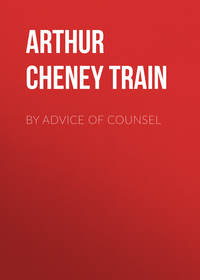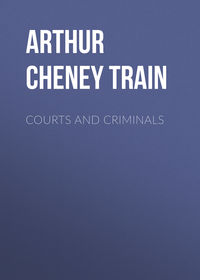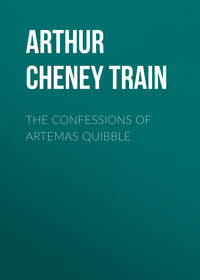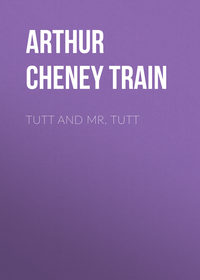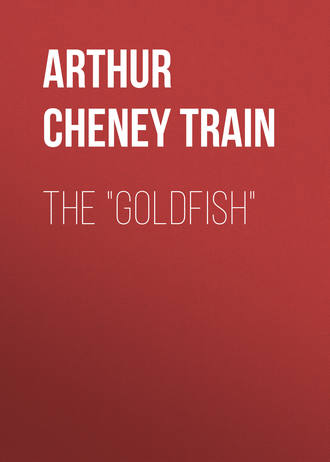
The "Goldfish"
The dean of Radcliffe College, who happened to be sitting behind two of her recent graduates while attending a performance of Parker's deservedly popular play "Disraeli" last winter, overheard one of them say to the other: "You know, I couldn't remember whether Disraeli was in the Old or the New Testament; and I looked in both and couldn't find him in either!"
I still pass socially as an exceptionally cultured man—one who is well up on these things; yet I confess to knowing to-day absolutely nothing of history, either ancient, medieval or modern. It is not a matter of mere dates, by any means, though I believe dates to be of some general importance. My ignorance is deeper than that. I do not remember the events themselves or their significance. I do not now recall any of the facts connected with the great epoch-making events of classic times; I cannot tell as I write, for example, who fought in the battle of the Allia; why Caesar crossed the Rubicon, or why Cicero delivered an oration against Catiline.
As to what subsequently happened on the Italian peninsula my mind is a blank until the appearance of Garibaldi during the last century. I really never knew just who Garibaldi was until I read Trevelyan's three books on the Resorgimento last winter, and those I perused because I had taken a motor trip through Italy the summer before. I know practically nothing of Spanish history, and my mind is a blank as to Russia, Poland, Turkey, Sweden, Germany, Austria, and Holland.
Of course I know that the Dutch Republic rose—assisted by one Motley, of Boston—and that William of Orange was a Hollander—or at least I suppose he was born there. But how Holland came to rise I know not—or whether William was named after an orange or oranges were named after him.
As for central Europe, it is a shocking fact that I never knew there was not some interdependency between Austria and Germany until last summer. I only found out the contrary when I started to motor through the Austrian Tyrol and was held up by the custom officers on the frontier. I knew that an old emperor named William somehow founded the German Empire out of little states, with the aid of Bismarck and Von Moltke; but that is all I know about it. I do not know when the war between Prussia and Austria took place or what battles were fought in it.
The only battle in the Franco-Prussian War I am sure of is Sedan, which I remember because I was once told that Phil Sheridan was present as a spectator. I know Gustavus Adolphus was a king of Sweden, but I do not know when; and apart from their names I know nothing of Theodoric, Charles Martel, Peter the Hermit, Lodovico Moro, the Emperor Maximilian, Catherine of Aragon, Catherine de' Medici, Richelieu, Frederick Barbarossa, Cardinal Wolsey, Prince Rupert—I do not refer to Anthony Hope's hero, Rupert of Hentzau—Saint Louis, Admiral Coligny, or the thousands of other illustrious personages that crowd the pages of history.
I do not know when or why the Seven Years' War, the Thirty Years' War, the Hundred Years' War or the Massacre of St. Bartholomew took place, why the Edict of Nantes was revoked or what it was, or who fought at Malplaquet, Tours, Soissons, Marengo, Plassey, Oudenarde, Fontenoy or Borodino—or when they occurred. I probably did know most if not all of these things, but I have entirely forgotten them. Unfortunately I manage to act as if I had not. The result is that, having no foundation to build on, any information I do acquire is immediately swept away. People are constantly giving me books on special topics, such as Horace Walpole and his Friends, France in the Thirteenth Century, The Holland House Circle, or Memoires of Madame du Barry; but of what use can they be to me when I do not know, or at least have forgotten, even the salient facts of French and English history?
We are undoubtedly the most superficial people in the world about matters of this sort. Any bluff goes. I recall being at a dinner not long ago when somebody mentioned Conrad II. One of the guests hazarded the opinion that he had died in the year 1330. This would undoubtedly have passed muster but for a learned-looking person farther down the table who deprecatingly remarked: "I do not like to correct you, but I think Conrad the Second died in 1337!" The impression created on the assembled company cannot be overstated. Later on in the smoking room I ventured to compliment the gentleman on his fund of information, saying:
"Why, I never even heard of Conrad the Second!"
"Nor I either," he answered shamelessly.
It is the same with everything—music, poetry, politics. I go night after night to hear the best music in the world given at fabulous cost in the Metropolitan Opera House and am content to murmur vague ecstasies over Caruso, without being aware of who wrote the opera or what it is all about. Most of us know nothing of orchestration or even the names of the different instruments. We may not even be sure of what is meant by counterpoint or the difference between a fugue and an arpeggio.
A handbook would give us these minor details in an hour's reading; but we prefer to sit vacuously making feeble jokes about the singers or the occupants of the neighboring boxes, without a single intelligent thought as to why the composer attempted to write precisely this sort of an opera, when he did it, or how far he succeeded. We are content to take our opinions and criticisms ready made, no matter from whose mouth they fall; and one hears everywhere phrases that, once let loose from the Pandora's Box of some foolish brain, never cease from troubling.
In science I am in even a more parlous state. I know nothing of applied electricity in its simplest forms. I could not explain the theory of the gas engine, and plumbing is to me one of the great mysteries.
Last, but even more lamentable, I really know nothing about politics, though I am rather a strong party man and my name always appears on important citizens' committees about election time. I do not know anything about the city departments or its fiscal administration. I should not have the remotest idea where to direct a poor person who applied to me for relief. Neither have I ever taken the trouble to familiarize myself with even the more important city buildings.
Of course I know the City Hall by sight, but I have never been inside it; I have never visited the Tombs or any one of our criminal courts; I have never been in a police station, a fire house, or inspected a single one of our prisons or reformatory institutions. I do not know whether police magistrates are elected or appointed and I could not tell you in what congressional district I reside. I do not know the name of my alderman, assemblyman, state senator or representative in Congress.
I do not know who is at the head of the Fire Department, the Street Cleaning Department, the Health Department, the Park Department or the Water Department; and I could not tell, except for the Police Department, what other departments there are. Even so, I do not know what police precinct I am living in, the name of the captain in command, or where the nearest fixed post is at which an officer is supposed to be on duty.
As I write I can name only five members of the United States Supreme Court, three members of the Cabinet, and only one of the congressmen from the state of New York. This in cold type seems almost preposterous, but it is, nevertheless, a fact—and I am an active practicing lawyer besides. I am shocked to realize these things. Yet I am supposed to be an exceptionally intelligent member of the community and my opinion is frequently sought on questions of municipal politics.
Needless to say, the same indifference has prevented my studying—except in the most superficial manner—the single tax, free trade and protection, the minimum wage, the recall, referendum, or any other of the present much-mooted questions. How is this possible? The only answer I can give is that I have confined my mental activities entirely to making my legal practice as lucrative as possible. I have taken things as I found them and put up with abuses rather than go to the trouble to do away with them. I have no leisure to try to reform the universe. I leave that task to others whose time is less valuable than mine and who have something to gain by getting into the public eye.
The mere fact, however, that I am not interested in local politics would not ordinarily, in a normal state of civilization, explain my ignorance of these things. In most societies they would be the usual subjects of conversation. People naturally discuss what interests them most. Uneducated people talk about the weather, their work, their ailments and their domestic affairs. With more enlightened folk the conversation turns on broader topics—the state of the country, politics, trade, or art.
It is only among the so-called society people that the subjects selected for discussion do not interest anybody. Usually the talk that goes on at dinners or other entertainments relates only to what plays the conversationalists in question have seen or which of the best sellers they have read. For the rest the conversation is dexterously devoted to the avoidance of the disclosure of ignorance. Even among those who would like to discuss the questions of the day intelligently and to ascertain other people's views pertaining to them, there is such a fundamental lack of elementary information that it is a hopeless undertaking. They are reduced to the commonplaces of vulgar and superficial comment.
"'Tis plain," cry they, "our mayor's a noddy; and as for the corporation—shocking!"
The mayor may be and probably is a noddy, but his critics do not know why. The average woman who dines out hardly knows what she is saying or what is being said to her. She will usually agree with any proposition that is put to her—if she has heard it. Generally she does not listen.
I know a minister's wife who never pays the slightest attention to anything that is being said to her, being engrossed in a torrent of explanation regarding her children's education and minor diseases. Once a bored companion in a momentary pause fixed her sternly with his eye and said distinctly: "But I don't give a – about your children!" At which the lady smiled brightly and replied: "Yes. Quite so. Exactly! As I was saying, Johnny got a—"
But, apart from such hectic people, who run quite amuck whenever they open their mouths, there are large numbers of men and women of some intelligence who never make the effort to express conscientiously any ideas or opinions. They find it irksome to think. They are completely indifferent as to whether a play is really good or bad or who is elected mayor of the city. In any event they will have their coffee, rolls and honey served in bed the next morning; and they know that, come what will—flood, tempest, fire or famine—there will be forty-six quarts of extra xxx milk left at their area door. They are secure. The stock market may rise and fall, presidents come and go, but they will remain safe in the security of fifty thousand a year. And, since they really do not care about anything, they are as likely to praise as to blame, and to agree with everybody about everything. Their world is all cakes and ale—why should they bother as to whether the pothouse beer is bad?
I confess, with something of a shock, that essentially I am like the rest of these people. The reason I am not interested in my country and my city is because, by reason of my financial and social independence, they have ceased to be my city and country. I should be just as comfortable if our Government were a monarchy. It really is nothing to me whether my tax rate is six one-hundredths of one per cent higher or lower, or what mayor rules in City Hall.
So long as Fifth Avenue is decently paved, so that my motor runs smoothly when I go to the opera, I do not care whether we have a Reform, Tammany or Republican administration in the city. So far as I am concerned, my valet will still come into my bedroom at exactly nine o'clock every morning, turn on the heat and pull back the curtains. His low, modulated "Your bath is ready, sir," will steal through my dreams, and he will assist me to rise and put on my embroidered dressing gown of wadded silk in preparation for another day's hard labor in the service of my fellowmen. Times have changed since my father's frugal college days. Have they changed for better or for worse?
Of one thing I am certain—my father was a better-educated man than I am. I admit that, under the circumstances, this does not imply very much; but my parent had, at least, some solid ground beneath his intellectual feet on which he could stand. His mind was thoroughly disciplined by rigid application to certain serious studies that were not selected by himself. From the day he entered college he was in active competition with his classmates in all his studies, and if he had been a shirker they would all have known it.
In my own case, after I had once matriculated, the elective system left me free to choose my own subjects and to pursue them faithfully or not, so long as I could manage to squeak through my examinations. My friends were not necessarily among those who elected the same courses, and whether I did well or ill was nobody's business but my own and the dean's. It was all very pleasant and exceedingly lackadaisical, and by the time I graduated I had lost whatever power of concentration I had acquired in my preparatory schooling. At the law school I was at an obvious disadvantage with the men from the smaller colleges which still followed the old-fashioned curriculum and insisted on the mental discipline entailed by advanced Greek, Latin, the higher mathematics, science and biology.
In point of fact I loafed delightfully for four years and let my mind run absolutely to seed, while I smoked pipe after pipe under the elms, watching the squirrels and dreaming dreams. I selected elementary—almost childlike—courses in a large variety of subjects; and as soon as I had progressed sufficiently to find them difficult I cast about for other snaps to take their places. My bookcase exhibited a collection of primers on botany, zoölogy and geology, the fine arts, music, elementary French and German, philosophy, ethics, methaphysics, architecture, English composition, Shakspere, the English poets and novelists, oral debating and modern history.
I took nothing that was not easy and about which I did not already know a little something. I attended the minimum number of lectures required, did the smallest amount of reading possible and, by cramming vigorously for three weeks at the end of the year, managed to pass all examinations creditably. I averaged, I suppose, outside of the lecture room, about a single hour's desultory work a day. I really need not have done that.
When, for example, it came time to take the examination in French composition I discovered that I had read but two out of the fifteen plays and novels required, the plots of any one of which I might be asked to give on my paper. Rather than read these various volumes, I prepared a skeleton digest in French, sufficiently vague, which could by slight transpositions be made to do service in every case. I committed it to memory. It ran somewhat as follows:
"The play"—or novel—"entitled – is generally conceded to be one of the most carefully constructed and artistically developed of all –'s"—here insert name of author—"many masterly productions. The genius of the author has enabled him skilfully to portray the atmosphere and characters of the period. The scene is laid in – and the time roughly is that of the —th century. The hero is –; the heroine, –; and after numerous obstacles and ingenious complications they eventually marry. The character of the old –"—here insert father, mother, uncle or grandparent, gardener or family servant—"is delightfully whimsical and humorous, and full of subtle touches. The tragic element is furnished by –, the –. The author touches with keen satire on the follies and vices of the time, while the interest in the principal love affair is sustained until the final dénouement. Altogether it would be difficult to imagine a more brilliant example of dramatic—or literary—art."
I give this rather shocking example of sophomoric shiftlessness for the purpose of illustrating my attitude toward my educational opportunities and what was possible in the way of dexterously avoiding them. All I had to do was to learn the names of the chief characters in the various plays and novels prescribed. If I could acquire a brief scenario of each so much the better. Invariably they had heroes and heroines, good old servants or grandparents, and merry jesters. At the examination I successfully simulated familiarity with a book I had never read and received a commendatory mark.
This happy-go-lucky frame of mind was by no means peculiar to myself. Indeed I believe it to have been shared by the great majority of my classmates. The result was that we were sent forth into the world without having mastered any subject whatsoever, or even followed it for a sufficient length of time to become sincerely interested in it. The only study I pursued more than one year was English composition, which came easily to me, and which in one form or another I followed throughout my course. Had I adopted the same tactics with any other of the various branches open to me, such as history, chemistry or languages, I should not be what I am to-day—a hopelessly superficial man.
Mind you, I do not mean to assert that I got nothing out of it at all. Undoubtedly I absorbed a smattering of a variety of subjects that might on a pinch pass for education. I observed how men with greater social advantages than myself brushed their hair, wore their clothes and took off their hats to their women friends. Frankly that was about everything I took away with me. I was a victim of that liberality of opportunity which may be a heavenly gift to a post-graduate in a university, but which is intellectual damnation to an undergraduate collegian.
The chief fault that I have to find with my own education, however, is that at no time was I encouraged to think for myself. No older man ever invited me to his study, there quietly and frankly to discuss the problems of human existence. I was left entirely vague as to what it was all about, and the relative values of things were never indicated. The same emphasis was placed on everything—whether it happened to be the Darwinian Theory, the Fall of Jerusalem or the character of Ophelia.
I had no philosophy, no theory of morals, and no one ever even attempted to explain to me what religion or the religious instinct was supposed to be. I was like a child trying to build a house and gathering materials of any substance, shape or color without regard to the character of the intended edifice. I was like a man trying to get somewhere and taking whatever paths suited his fancy—first one and then another, irrespective of where they led. The Why and the Wherefore were unknown questions to me, and I left the university without any idea as to how I came to be in the world or what my duties toward my fellowmen might be.
In a word the two chief factors in education passed me by entirely—(a) my mind received no discipline; (b) and the fundamental propositions of natural philosophy were neither brought to my attention nor explained to me. These deficiencies have never been made up. Indeed, as to the first, my mind, instead of being developed by my going to college, was seriously injured. My memory has never been good since and my methods of reading and thinking are hurried and slipshod, but this is a small thing compared with the lack of any philosophy of life. I acquired none as a youth and I have never had any since. For fifty years I have existed without any guiding purpose except blindly to get ahead—without any religion, either natural or dogmatic. I am one of a type—a pretty good, perfectly aimless man, without any principles at all.
They tell me that things have changed at the universities since my day and that the elective system is no longer in favor. Judging by my own case, the sooner it is abolished entirely, the better for the undergraduate. I should, however, suggest one important qualification—namely, that a boy be given the choice in his Freshman year of three or four general subjects, such as philosophy, art, history, music, science, languages or literature, and that he should be compelled to follow the subjects he elects throughout his course.
In addition I believe the relation of every study to the whole realm of knowledge should be carefully explained. Art cannot be taught apart from history; history cannot be grasped independently of literature. Religion, ethics, science and philosophy are inextricably involved one with another.
But mere learning or culture, a knowledge of facts or of arts, is unimportant as compared with a realization of the significance of life. The one is superficial—the other is fundamental; the one is temporal—the other is spiritual. There is no more wretched human being than a highly trained but utterly purposeless man—which, after all, is only saying that there is no use in having an education without a religion; that unless someone is going to live in the house there is not much use in elaborately furnishing it.
I am not attempting to write a treatise on pedagogy; but, when all is said, I am inclined to the belief that my unfortunate present condition, whatever my material success may have been, is due to lack of education—in philosophy in its broadest sense; in mental discipline; and in actual acquirement.
It is in this last field that my deficiencies and those of my class are superficially most apparent. A wide fund of information may be less important than a knowledge of general principles, but it is none the less valuable; and all of us ought to be equipped with the kind of education that will enable us to understand the world of men as well as the world of nature.
It is, of course, essential for us to realize that the physical characteristics of a continent may have more influence on the history of nations than mere wars or battles, however far-reaching the foreign policies of their rulers; but, in addition to an appreciation of this and similar underlying propositions governing the development of civilization, the educated man who desires to study the problems of his own time and country, to follow the progress of science and philosophy, and to enjoy music, literature and art, must have a certain elementary equipment of mere facts.
The Oriental attitude of mind that enabled the Shah of Persia calmly to decline the invitation of the Prince of Wales to attend the Derby, on the ground that "he knew one horse could run faster than another," is foreign to that of Western civilization. The Battle of Waterloo is a flyspeck in importance contrasted with the problem of future existence; but the man who never heard of Napoleon would make a dull companion in this world or the next.
We live in direct proportion to the keenness of our interest in life; and the wider and broader this interest is, the richer and happier we are. A man is as big as his sympathies, as small as his selfishness. The yokel thinks only of his dinner and his snooze under the hedge, but the man of education rejoices in every new production of the human brain.
Advantageous intercourse between civilized human beings requires a working knowledge of the elementary facts of history, of the achievements in art, music and letters, as well as of the principles of science and philosophy. When people go to quarreling over the importance of a particular phase of knowledge or education they are apt to forget that, after all, it is a purely relative matter, and that no one can reasonably belittle the value of any sort of information. But furious arguments arise over the question as to how history should be taught, and "whether a boy's head should be crammed full of dates." Nobody in his senses would want a boy's head crammed full of dates any more than he would wish his stomach stuffed with bananas; but both the head and the stomach need some nourishment—better dates than nothing.
If a knowledge of a certain historical event is of any value whatsoever, the greater and more detailed our knowledge the better—including perhaps, but not necessarily, its date. The question is not essentially whether the dates are of value, but how much emphasis should be placed on them to the exclusion of other facts of history.
"There is no use trying to remember dates," is a familiar cry. There is about as much sense in such a statement as the announcement: "There is no use trying to remember who wrote Henry Esmond, composed the Fifth Symphony, or painted the Last Supper." There is a lot of use in trying to remember anything. The people who argue to the contrary are too lazy to try.


